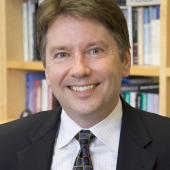
In appreciation of Prof. Daniel I.C. Wang’s contributions to education and research in biochemical engineering as well as his technological innovations in bioprocessing. This award has been established by the Society for Biological Engineering. The award will be presented to a distinguished biochemical engineer and biotechnologist by the Biochemical Technology Division of the American Chemical Society and by the Food, Pharmaceuticals and Bioengineering Division of the American Institute of Chemical Engineers and the Society of Biological Engineering.
From Artificial Cofactors to Synthetic Arrays: Teaching Old Enzymes New Tricks
Douglas S. Clark, Dean, College of Chemistry and Professor, Department of Chemical and Biomolecular Engineering, University of California, Berkeley
Modern biotechnology comprises remarkable capabilities to engineer biological systems and impart them with novel functions, from living organisms with reprogramed genomes to individual proteins with optimized structures. Another resource and relatively recent addition to the biotechnology armory are the extremophiles, which span the limits of life on earth and represent a vast but still largely untapped source of new bioproducts and biomaterials. For proteins in particular, opportunities to expand their range of function and/or create new activities have never been greater, and include protein engineering by directed evolution or rational design, harnessing proteins from extremophiles, and equipping enzymes with unnatural chemical moieties that enable them to carry out abiotic transformations. Accelerated rates of catalysis, enhanced stability against denaturants, higher binding affinities of ligands, and even programmed self-assembly and designed mechanical functions are currently possible and rapidly advancing with improved techniques and understanding of protein structure-function relationships. Application areas that we have focused on recently include expanding biocatalysis to include abiological reactions and reaction conditions at the outer limits of life, and developing advanced biomaterials with programmable functions. Progress on each of these fronts will be discussed.
Supported by the AIChE Foundation

